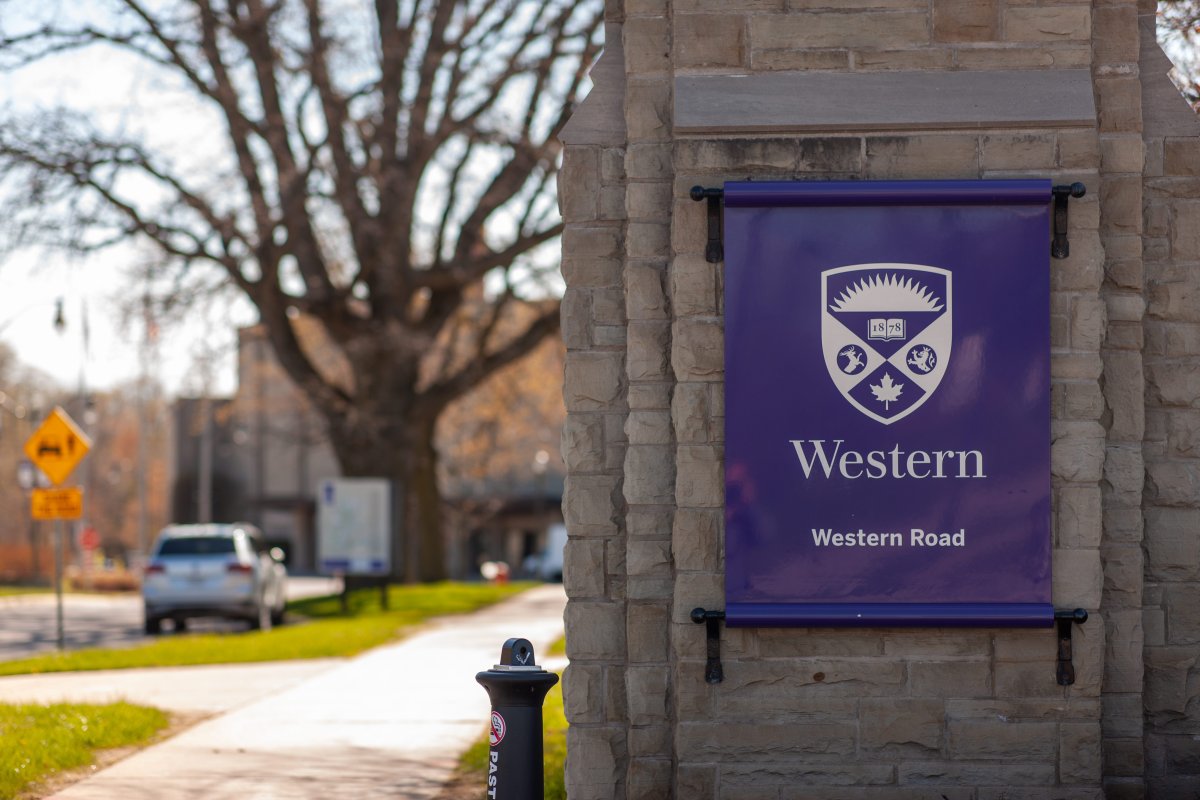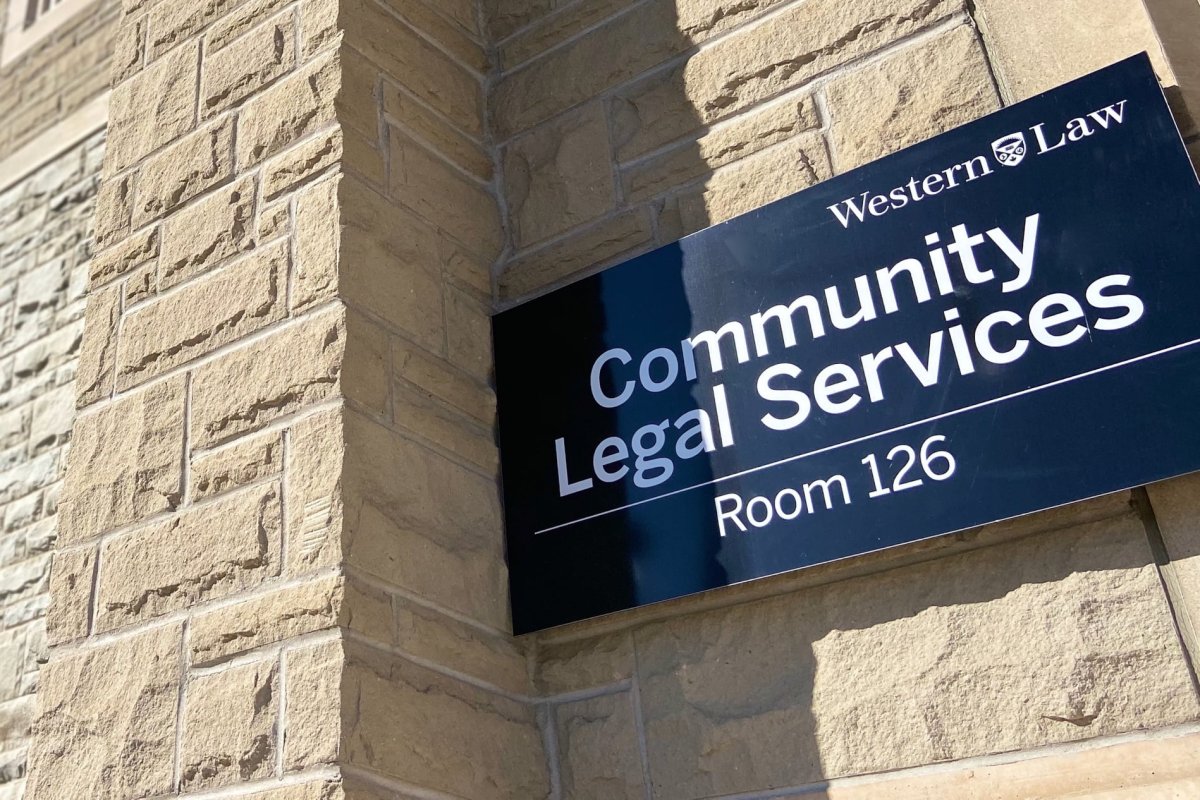Students at Western University now have access to free legal information surrounding sexual assault thanks to the launch of a new pilot program entirely run by volunteers.

Operating out of Western’s Community Legal Services office, the Legal Information for Sexual Assault (LISA) program is accepting both in-person and virtual appointments from now until the end of the April.
At no cost, students can speak with volunteering law students who are supervised by a sexual assault lawyer to learn about potential legal options following sexual violence.
This may include questions on reporting an incident to police, what to expect as a complainant in a criminal process, reporting incidents on campus through Western’s complaint process, civil legal options and how to approach the Human Rights Tribunal of Ontario. Students visiting LISA can also receive referrals for legal advice or representation.
All information shared during appointments is kept confidential.
The idea behind LISA first came to founding member and former Western student Chanèle Rioux-McCormick in September 2021 when numerous reports of sexual assaults on campus eventually led to a massive student walkout featuring some 9,000 participants.
Rioux-McCormick and Alexandra Strickland, another former student, took part in the walkout and soon learned there was a lack of accessible and easy-to-find legal supports for survivors of sexual violence on campus.

This prompted the pair to co-author Legal Remedies and Resources for Survivors of Sexual Violence on Campus, a comprehensive guide published in March 2022 that served as the precursor to LISA.
Rioux-McCormick took the guide a step further and teamed up with fellow LISA founder members Dr. Mandi Gray, Anju Fujioka and Delaney Gilmore to build the pilot program that officially launched this month.
“Everyone at Western had been incredibly accepting of the program from the beginning,” Rioux-McCormick said, adding that Gray had a significant role in helping craft the program’s proposal.
A sexual assault lawyer in London, Fujioka will serve as the program’s supervising lawyer. She brings a wealth of experience advocating for survivors of sexual and gender-based violence and currently serves as the co-vice chair of Anova’s board of directors.
She also advises the Ministry of Justice of The Gambia on how to respond to crimes involving sexual and gender-based violence through an initiative funded by Global Affairs Canada.
- Canadian man dies during Texas Ironman event. His widow wants answers as to why
- ‘Shock and disbelief’ after Manitoba school trustee’s Indigenous comments
- Several baby products have been recalled by Health Canada. Here’s the list
- ‘Sciatica was gone’: hospital performs robot-assisted spinal surgery in Canadian first
When asked about her thoughts on LISA, Fujioka says, “I’ve been telling people that dreams do come true.”
“This is the kind of service that I wish existed when I was on campus,” she added.
“We’re kind of signalling to the campus community that after your health, your personal safety — those are paramount concerns, of course — but also, there may be legal rights that you want to at least start thinking about.
Fujioka will supervise a team of volunteering law students who’ve received extensive training, including Anova-led training on trauma-informed practices.
The LISA program is intended to provide a “safe, judgement-free environment” and Fujioka says she expects the team will receive a variety of questions, which may not be strictly related to legal information.
This could include questions about what constitutes consent or asking whether a certain incident could be defined as sexual assault.
“You can walk in and say ‘hypothetically, if something happened or if someone is sexually assaulted what are the options?’ It can be that vague, and we will do our best to provide fulsome information to you,” Fujioka said.
“There is the option to not do anything and just to know your options.”
Along with empowering survivors with legal information, Rioux-McCormick says another goal of the program was to provide law students with extensive training and experiential learning through volunteering with LISA.
“Law is a very client-facing industry. A lot of times they’re listening to someone’s story and most of the time, it’s during the worst period of their life. I don’t think in law school we get enough training on how to properly navigate those conversations and make our clients feel supported,” Rioux-McCormick said.
“Trauma doesn’t only apply to experiences of sexual abuse, so the students in this program, even if they don’t seek to become sexual abuse litigators, they can still use the skills that they’ve learned through (LISA).”
LISA does not provide legal advice, but the province does offer up to four hours of free independent legal advice for Ontarians 16 and older who are survivors of a sexual assault that took place in Ontario. Rioux-McCormick hopes those who access LISA will learn how to get the most out of those four hours as possible.
The pilot phase of LISA runs until the end of April and the program’s team hopes it will be renewed permanently in the fall.
An assessment of the program will also explore whether it can be implemented into other campuses, Rioux-McCormick said.
In the meantime, Western students can book a free appointment on LISA’s website.
The program is also hosting a virtual information session on Wednesday at noon.










Comments